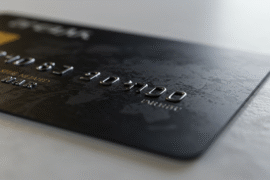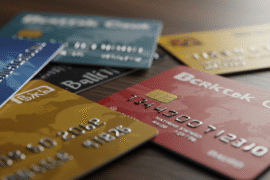This article may contain references to products or services from one or more of our advertisers or partners. We may receive compensation when you click on links to those products or services. Nonetheless, our opinions are our own.
The information presented in this article is accurate to the best of our knowledge at the time of publication. However, information is subject to change, and no guarantees are made about the continued accuracy or completeness of this content after its publication date.
Working from home should be easier. There is no commute. No office distractions. Just you, your tasks, and a schedule you can control.
So, why is it so difficult to focus?
Because the human brain is not wired for constant productivity. It requires breaks—brief, deliberate resets that clear mental fog and bring focus back into sharp relief. Enter work-from-home focus games.
These are not simply distractions. They are tools. A quick productivity game can serve as a mental refresher for remote workers, allowing them to sharpen their thinking, avoid burnout, and work deeper for longer periods of time.
What’s the key? Choosing the correct ones.
Why Quick Games Improve Focus
Some breaks deplete energy. Others restore it.
Scrolling through social media? That is a distraction loop, which frequently leaves you feeling tireder than before. But what about a well-chosen brain break while working remotely? That is a performance enhancer.
Quick, interactive games keep the mind active without exhausting it. They work because:
- Trigger dopamine – Small, immediate rewards keep motivation up.
- Encourage micro-focus – Short challenges improve attention without strain.
- Break cognitive overload – Mental resets prevent fatigue from intensive work.
It is not about avoiding work. It’s all about optimizing your workflow.
Best Work-from-Home Focus Games
Not all games increase productivity. Some people overstimulate. Others require too much time. The best ones are quick, engaging, and mentally stimulating.
Here are the best quick games for work focus that sharpen the mind while keeping the energy levels high.
1. Plinko-Style Games for Decision-Making Without Overthinking
The Plinko game appears simple. Drop a chip, watch it bounce, and see where it lands. But beneath the surface, it’s an excellent exercise in rapid decision-making.
Here’s why it works:
- It forces quick, low-risk decisions—no hesitation, just action.
- It teaches the brain to accept uncertainty while striving for optimal results.
- The randomness maintains high engagement, preventing mental fatigue.
This is invaluable for remote workers who must manage a variety of tasks. Decision fatigue exists, but games such as Plinko help rewire the brain to trust instincts and adapt quickly.
Do you want to try it? Experience the thrill of the official Plinko game and see how your brain responds.
2. Word Puzzles: Improve Your Verbal Skills
Words play an important role in cognitive function. The speed with which you can find them also matters.
Crossword puzzles, anagrams, and rapid word association games test verbal recall, making them ideal for anyone who writes, presents, or communicates frequently. Five minutes of word puzzles before getting into emails? It’s similar to stretching before a run: it loosens up the mental muscles required for performance.
3. Speed-Based Brain Games: Race Against Yourself
Time constraints alter everything.
Set up a 60-second countdown. Play a rapid-reaction game that requires you to think, decide, and act before the timer runs out. These challenges improve mental agility, allowing you to switch between tasks without losing momentum.
Excellent for getting out of a mental slump.
4. Memory Games: Improving Focus and Attention to Detail
Distractions destroy productivity. A quick memory game teaches your brain to notice details and retain information under pressure.
Consider matching cards, pattern recall, or number sequences. The challenge is brief but demanding, requiring full participation. Play for a few minutes, then return to work with a sharper focus.
Voted "Best Overall Budgeting App" by Forbes and WSJ
Monarch Money helps you budget, track spending, set goals, and plan your financial future—all in one app.
Get 50% OFF your first year with code MONARCHVIP
How Gamification Enhances Learning and Productivity
How does gamification enhance learning? It simplifies engagement.
Think about it: why do people become addicted to games? Because they are designed to reward progress, promote problem solving, and provide immediate feedback.
Gamified focus tools follow the same principles:
- Micro-goals – Small accomplishments keep motivation high.
- Instant feedback loops – Correct actions are reinforced in real time.
- Engagement triggers – Unpredictability keeps the brain interested.
The Plinko game exemplifies this perfectly. It’s unpredictable, engaging, and teaches risk assessment with no consequences—a skill that translates directly to job performance.
What Role Does Chance Play in Decision Making?
Life does not come with guarantees. Neither does Plinko.
Drop the chip. Hope for the best. Learn from the results. Adjust for the next time.
This is real-life decision-making in action. Every decision, no matter how big or small, involves some level of uncertainty. The best performers do not avoid risk; rather, they assess it quickly and act confidently.
That’s why games that combine chance and skill are so effective. They condition the mind to:
- Embrace uncertainty – Rather than fearing randomness, view it as a tool.
- Adapt on the fly – Make decisions without overthinking.
- See patterns in chaos – Identify trends in seemingly random events.
Remote work is unpredictable. The ability to think quickly and adjust provides a competitive advantage.
How Interactive Games Improve Cognitive Skills
Passive breaks do not work. Mindless scrolling? That’s only digital noise.
Interactive games keep the mind active. They activate multiple cognitive functions simultaneously, enhancing:
- Memory retention – Action-based learning is more effective than passive intake.
- Strategic thinking – Games require decision-making in a stress-free environment.
- Play fosters creativity and problem-solving skills.
Gamification in learning is more than just education; it’s also about performance. When used correctly, it improves cognitive endurance while still making work enjoyable.
Final Thoughts: The Power of Play for Productivity
Productivity is not about grinding. It’s about understanding your brain’s rhythm.
Short, strategic brain breaks during remote work enable greater focus, better decision-making, and more creative problem-solving. What’s the key? Choosing productivity games that help you think rather than distract you.
Try something new today. Drop a chip into a Plinko game, complete a word puzzle, or race against the clock.
Because sometimes, the quickest way to get back on track is to play.

Reviewed and edited by Albert Fang.
See a typo or want to suggest an edit/revision to the content? Use the contact us form to provide feedback.
At FangWallet, we value editorial integrity and open collaboration in curating quality content for readers to enjoy. Much appreciated for the assist.
Did you like our article and find it insightful? We encourage sharing the article link with family and friends to benefit as well - better yet, sharing on social media. Thank you for the support! 🍉
Article Title: Stay Focused: How Quick Games Can Increase Productivity While Working From Home
https://fangwallet.com/2025/03/25/stay-focused-how-quick-games-can-increase-productivity-while-working-from-home/The FangWallet Promise
FangWallet is an editorially independent resource - founded on breaking down challenging financial concepts for anyone to understand since 2014. While we adhere to editorial integrity, note that this post may contain references to products from our partners.
The FangWallet promise is always to have your best interest in mind and be transparent and honest about the financial picture.
Become an Insider

Subscribe to get a free daily budget planner printable to help get your money on track!
Make passive money the right way. No spam.
Editorial Disclaimer: The editorial content on this page is not provided by any of the companies mentioned. The opinions expressed here are the author's alone.
The content of this website is for informational purposes only and does not represent investment advice, or an offer or solicitation to buy or sell any security, investment, or product. Investors are encouraged to do their own due diligence, and, if necessary, consult professional advising before making any investment decisions. Investing involves a high degree of risk, and financial losses may occur including the potential loss of principal.
Source Citation References:
+ Inspo
There are no additional citations or references to note for this article at this time.












































